You know it as St. James. It once was Miss Nicholson’s Select Seminary for Young Ladies
- Oops!Something went wrong.Please try again later.
For about 180 years, a property south of Hagerstown has been the home of St. James School.
But even before the Episcopal boarding school opened in 1842, the property had been used for educational purposes — for young women.
In December 1827, Miss Elizabeth Nicholson announced the opening of a “school for young ladies” in the Torch Light and Public Advertiser, a Hagerstown newspaper. Miss Nicholson’s school offered “all the branches of a substantial and polite female education,” which included subjects like “Reading, Writing, Arithmetic, Needle Work, Grammar, Geography, [and] Astronomy.”
A single woman in her 30s, Nicholson had planned and persisted to see her school become a reality. She campaigned, requesting support and references from prominent individuals such as banker Daniel Sprigg, whom local electors had chosen to serve in the Maryland Senate in 1826, but he declined the office; the Rev. John Mines of Rockville, Md., who had opened a young men’s academy; and a Miss Inglis of Hagerstown, who already ran a successful “Select Boarding School for Young Ladies.”
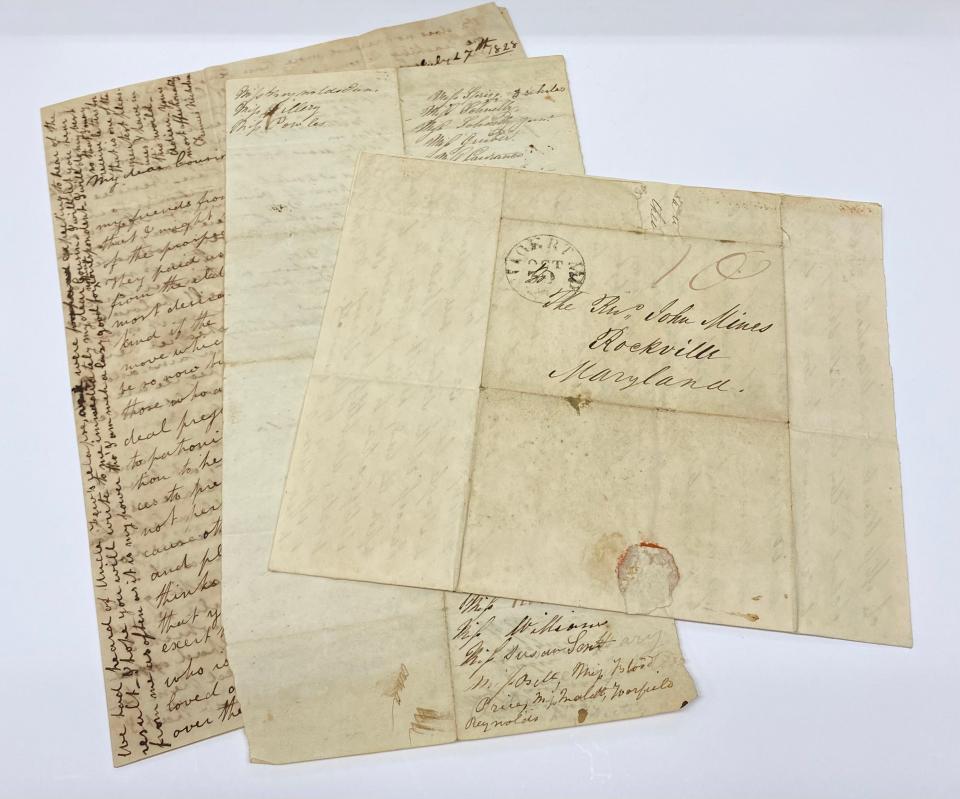
All Nicholson needed to open her school in the fall of 1827 was a location. As it happened, Maria Antoinette Ringgold of Hagerstown had an excellent location for a school — all she needed was a teacher for her daughters.
Maria Ringgold (1790-1875) was the second wife of Samuel Ringgold (1770-1829), a brigadier general in the Maryland militia and a member of Congress. Maria and Samuel had married in 1813 at the White House; by 1827, they had five children together, in addition to the 11 children Samuel already had.
The Ringgold family lived on a thousand-acre farm called Fountain Rock, five miles south of Hagerstown. Their manor, called the Mansion House, saw such notable visitors as James and Dolley Madison, Henry Clay and Monroe.
Maria Ringgold wrote to Nicholson in November 1827, proposing that she open her school at Fountain Rock.
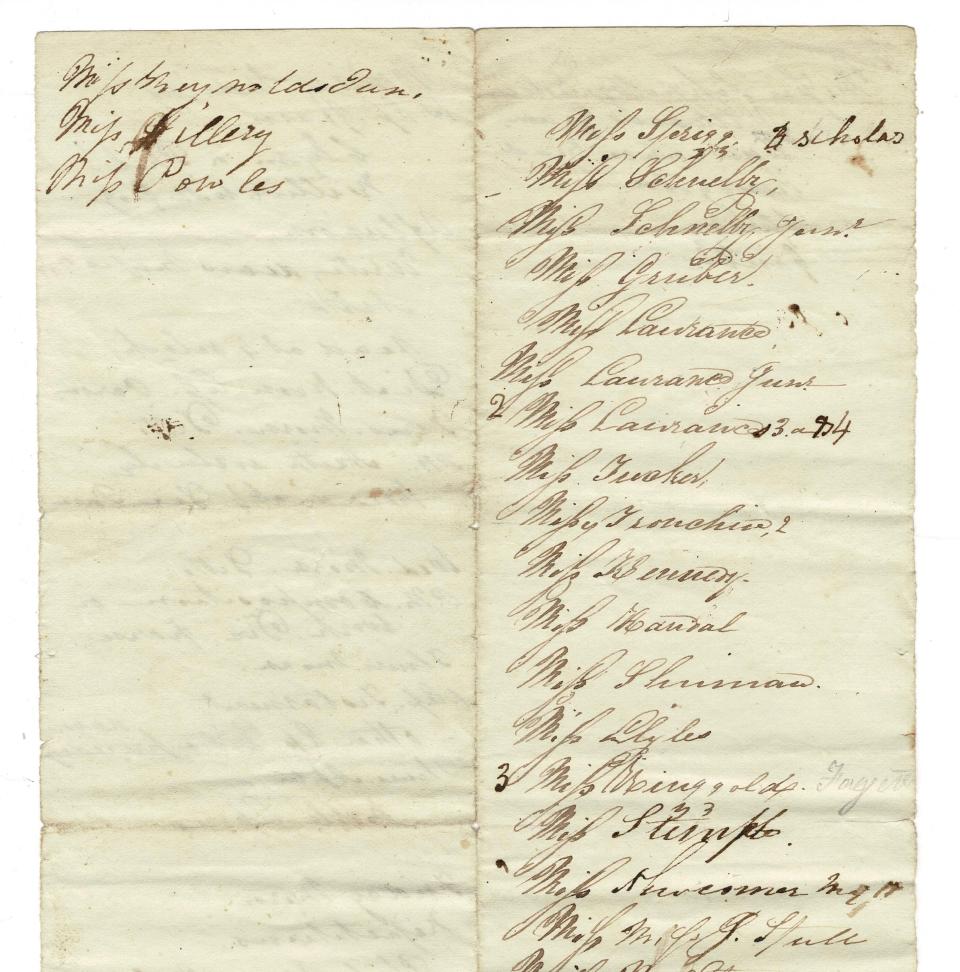
“[We] shall be happy if you will make our house your home,” Ringgold wrote. “General Ringgold my Husband is well acquainted with your family & joins me in approving the content of this letter.”
And so Miss Nicholson’s Select Seminary for Young Ladies opened in the Ringgold mansion house. Maria Ringgold’s daughters, Marie and Virginia, soon attended.
Don't miss:Want a glimpse of Christmas past? Peek into a long-ago diary
More local history:He built the Miller House. Then he defended a sheriff accused of murder.
Nicholson acted as headmistress and educator, frequently corresponding with anxious parents. “I have been inquiring of Augusta as to her lessons in History, and Major Bowers joins me in requesting you will demand no more than ten pages to be studied in one evening,” a Mrs. A. Bowers, mother to Augusta, told Nicholson, as she feared too much reading would injure Augusta’s health.
Gen. Ringgold died Oct. 18, 1829, providing for Maria and her children before passing his estate to his eldest daughter, Mary Elizabeth.
Following his death, Nicholson removed Virginia Ringgold from her school in 1830.
“No one can regret more than I do the misunderstanding between my daughter and Miss N–," Maria Ringgold soon wrote. "Virginia also feels sorry that there should ever have been any cause of uneasiness between Miss Nicholson and herself, and is desirous (if agreeable) of reinstating herself into Miss Nicholson’s school and favor.”
The cause of the conflict, and whether Virginia was reinstated, remain a mystery. In May 1830, the newspaper advertised that “Miss Nicholson’s Select Seminary” was still active in a “genteel family,” but whether this family was the Ringgolds is unclear.
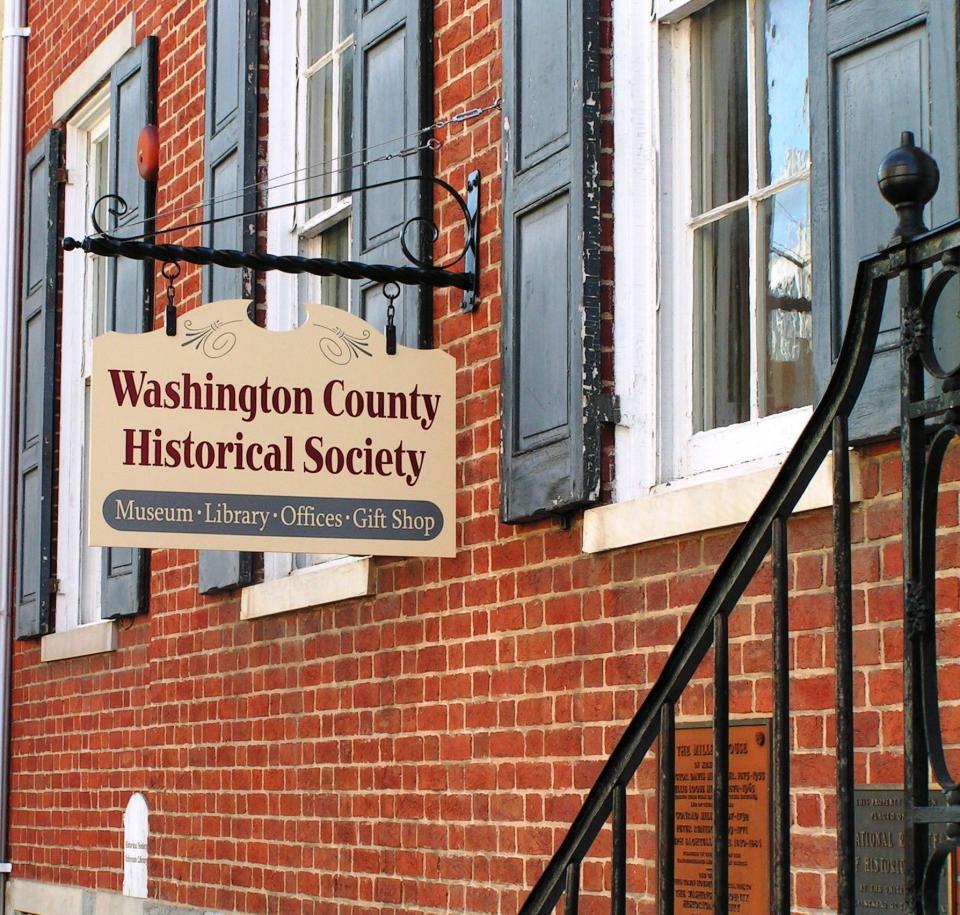
Maria Ringgold remarried in 1832. Her new husband was a man named Robert Tidball, and she moved to the high society of Washington, D.C. Virginia married John Ross Key, a son of Francis Scott Key, in 1835 and moved to Chicago.
The Ringgolds' mansion house at Fountain Rock saw several ownership changes over the following decade. In 1841, the Episcopal Church purchased the property. They restored the dilapidated house and renamed it Claggett Hall, opening the College of St. James there in 1842.
But what happened to Elizabeth Nicholson? And who was she, exactly? Genealogical records suggest she was Elizabeth Hopper Nicholson, daughter of Judge Joseph Hopper Nicholson (1770-1817) and Rebecca Lloyd (1771-1847). This Elizabeth had a brother named Joseph (as did Miss Nicholson), and both were unmarried. Was this same Elizabeth Nicholson?
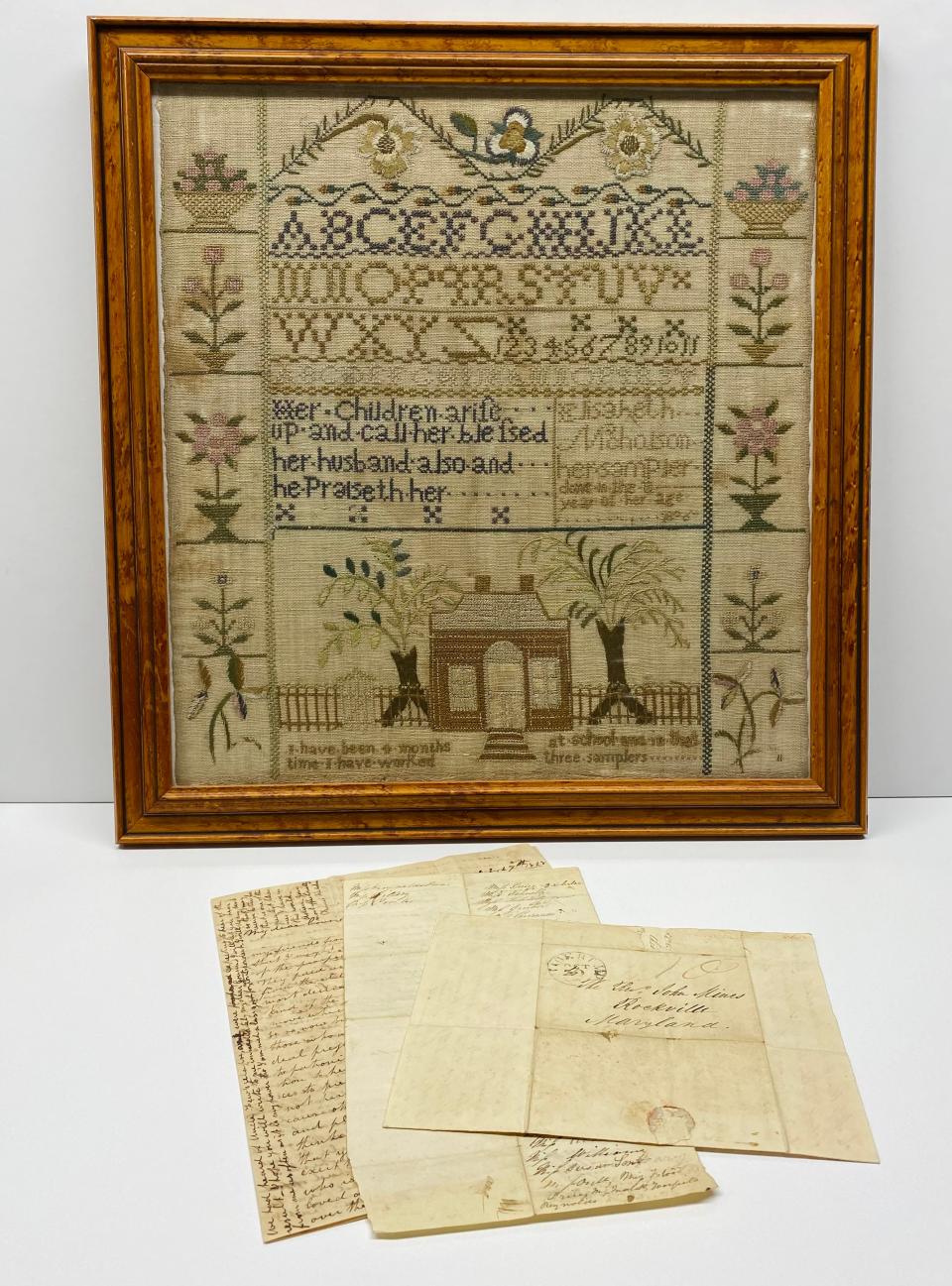
Research suggests yes, yet her status as an unmarried woman makes her difficult to track. And U.S. census records did not record women’s names in each household until 1850 unless they were the head of the household.
One artifact in the Washington County Historical Society collection could be linked to Elizabeth Nicholson. A sampler, cross-stitched in 1806 “[by Elisabeth Nicholson] in the 11 year of her age” might have belonged to her — a part of the education that inspired her to teach.
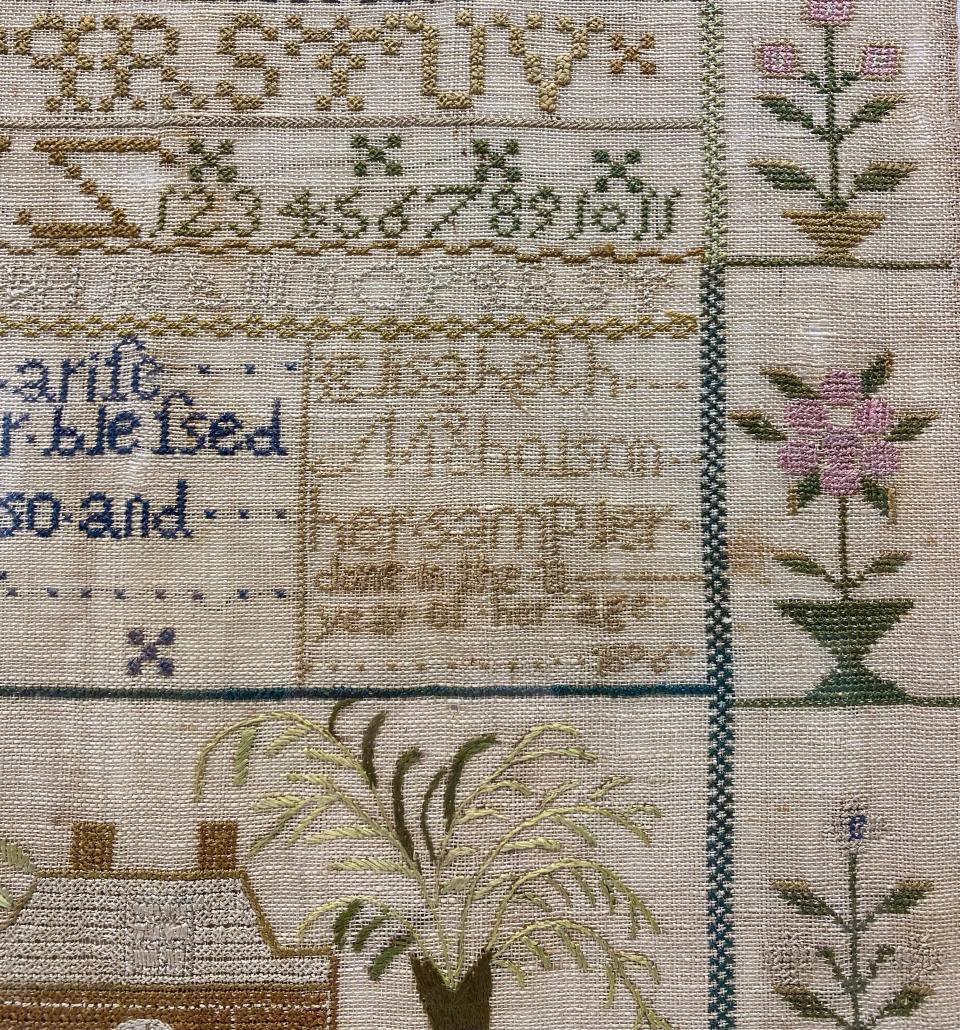
Regardless, for a brief time Elizabeth Nicholson achieved her dream of educating young women in Hagerstown; she advocated for herself and established a seminary at Fountain Rock more than a decade before the opening of St. James College. Her letters in the WCHS collection are a valuable glimpse into the lives of early 19th- century women living in Washington County.
Abigail Koontz is curator for the Washington County Historical Society.
This article originally appeared on The Herald-Mail: In 1827, Miss Nicholson offered 'substantial and polite' girls' school

